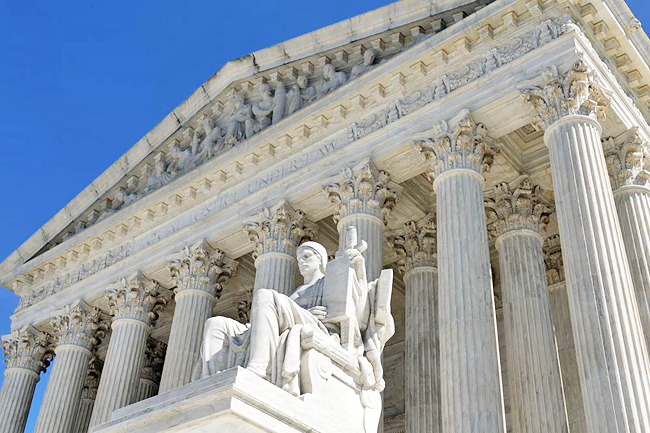WASHINGTON (AFP) – The United States (US) Supreme Court this week examines a quarter-century old law that has protected tech companies from lawsuits and prosecution for content posted by their users, with a chance that the rules governing the Internet will no longer stand.
Enacted when Facebook founder Mark Zuckerberg was just 11 years old and Google’s creation still two years off, Section 230 is seen as a fundamental law of the Internet and considered inviolable by its staunch defenders.
Section 230 was part of the Communication Decency Act, an anti-pornography law signed in 1996, that helped set the rules of the road for the Internet, which was still in its infancy as an online playground for all.
The idea was to protect the then embryonic Internet sector from cascading lawsuits and to allow it to flourish, while encouraging tech companies to moderate their content. At the time most of the attention went on limits put on sexual content, a part of the bill that was backed by then president Bill Clinton and that was later struck down by the Supreme Court in a landmark case.
But inserted into the legislation was Section 230 which stated that “no provider or user of an interactive computer service shall be treated as the publisher” or hold responsibility for content that came from an outside party.
This immunity is largely seen as the regulatory tweak that would eventually free the way for Google search and sow the seeds for the social media revolution.

Under the protection of Section 230, Facebook, Instagram, Twitter or YouTube became the conduits of a world conversation without ever being at risk of lawsuit by someone taking offense at a tweet or a controversial video.
The law also protects Wikipedia or classified ads sites such as Craigslist whose success would also upend traditional media.
But opponents to the law would like to see platforms get sued for drug deals, cyber stalking and violent threats that take place on their sites.
To be sure, Section 230 is not free speech absolutism as endorsed by Elon Musk, the multibillionaire owner of Twitter. Stung by scandals, big tech companies hire thousands of workers to moderate their platforms in order to preserve their huge audiences and big advertisers as well as avert closer government scrutiny.
But the work is never perfect, and companies still face challenges in policing posts from billions of users.
Courts in the US have regularly upheld Section 230 in its almost 30 years of existence, but its powerful backers are worried about the emotionally charged cases that will be put before the Supreme Court, both involving terrorism.
In two hearings last Tuesday and Wednesday, the judges will listen to arguments brought by families of the victims of extremist attacks who accuse Google and Twitter of having “helped” the perpetrators, the Islamic State group, by publishing its propaganda. Twenty-eight state governments are also calling for a rethink of Section 230.






